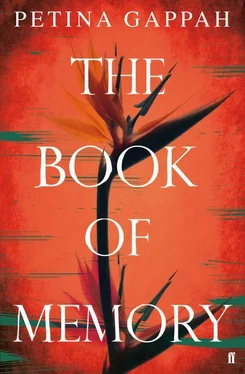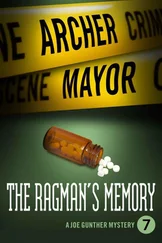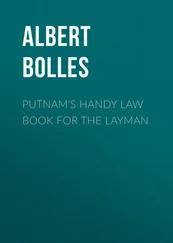The main passion of his academic life was to translate Homer and Aristotle into Shona. He took pains at it, insisting that the only pure translation was one that came from the original Greek texts. For Lloyd, using the English texts would not only have been a lamentable shortcut, it would also have destroyed the integrity of the project, and taken away all its fun. They are still there, I imagine, Lloyd’s books and manuscripts, on the shelves of his study in Summer Madness. ‘Mambo Idhipasi’. ‘Idhipasi wekuAntioch’. ‘Rwendo rwaOdhisiyasi’. If they are not still at Summer Madness, I imagine Alexandra threw them out.
Lloyd’s written Shona was much better than mine. My spoken Shona is still fluent, but my writing is frozen at the age of eight, which is when I last wrote it in school. This is one of the consequences of a superior education, you see. In this independent, hundred-per-cent-empowered and fully and totally indigenous blacker-than-black country, a superior education is one that the whites would value, and as the whites do not value local languages, the best-educated among us have sacrificed our languages at the altar of what the whites deem supreme. So it was in colonial times, and so it remains, more than thirty years later.
So I never learned how to write with lyricism or beauty in my own language. I never learned the proverbs and metaphors that give colour to the language. But there is a proverb that I still remember from Mistress Nyathi’s class in grade three, which goes ‘matakadya kare haanyaradzi mwana, memories of bygone feasts will not feed a hungry child’.
My memories are not of bygone feasts, unless you count the birthday parties that my mother had for us. The day that my mother and father sold me to Lloyd is the day that our different lots, his and mine, collided to form the thread that brought me here to this cell in Chikurubi Prison. Until that day, I had been going in one direction, my sphere limited to house number 1468 Mharapara Street in Mufakose, to my two parents, my dead brother and two sisters, to my school, to my small joys and sorrows.
Fighting Nhau’s daily torments and the hissing of the children. Struggling to conquer the twelve times table. Longing sharply for food that we did not have, ready-made, store-bought food like candy cakes and Colcom pork pies and cream doughnuts. Fearing always the heat of the sun, and the smell of Mercurochrome and the purple stains of gentian violet that were dabbed on my blistering skin by the rough, callused hands of the nurses at Gomo Hospital.
Trying to be invisible. I spent much of my life trying to be invisible. But I was never truly invisible. Even in London, or Sydney, where I should have blended in with everyone, the world’s gaze came with a double take. On the surface, my skin looked like everybody else’s, but seen closer, my features are very obviously not Caucasian. I could feel the puzzlement on the face as the mind tried to work out what was different.
The most hysterical reaction came from a pregnant inmate called Melody, who looked at me with her one eye round with fear before screaming so loudly that the guards had to take her away. Jimmy said that she was afraid that I would infect the baby she carried. Years ago, this might have hurt me, but it doesn’t now. It no longer hurts with the acid pain I felt as a child. It is a long time since I wanted to crawl out of my own skin.
I once found, in an old book at one of the antiquarian bookstores on Charing Cross Road in London, a facsimile of a handbill exhorting the public to witness THE AMAZING WHITE NEGRO, YOURS TO SEE FOR 2S ONLY in Piccadilly. By then I had left home, but I had not completely let go of a childhood game that I had once played alone, in which I moved myself across time and space and imagined the alternative lives I could have had, had I been, for instance, born in Pompeii or in Egypt or in Atlantis or the Wild West.
It struck me as I looked at that handbill that any alternative life that I might have had in a freak show in Piccadilly in the seventeenth century would not have been particularly different from my childhood in Mufakose. The only difference was that, in the twentieth century in Mufakose, I was a freak who made money for no one.
In a township, everything odd, particularly oddities of appearance, is remarked on. But in my case, even the people who looked odd, like Sekuru Jonas, who limped on his left leg and lived across the street and made manyatera sandals at Siyaso, spat whenever he saw me.
MaiTafadzwa, who could only afford to feed her family on Lacto sour milk and matemba , muttered something under her breath and spat. The Phiri family two houses down from MaiNever’s place, generally mocked because they were Malawian and the father had a sing-song voice and joined the zvinyau dancers on the banks of the Marimba River, looked at me with eyes of pity.
And when my family made rare visits with me outside the township, the children of other townships did that thing that children do, they shouted to remind me I was a murungudunhu , and not content with that, danced around me and announced my presence to everyone.
What made my situation worse — at least, as I saw it — was that I was not the only albino person in the township. The other was Lameck, who had a squashed face and red, blotchy skin that broke over his arms and face.
His hair was almost orange. Mine was just as strange, not black like everyone else’s but closer to white, the same colour as my skin. Lameck stood in the same place every day; he sold tomatoes and maputi at the market that sprouted at the corner of Mharapara and Kafudzamombe Avenue. He had placed himself so that the people who lived at our end of Mharapara did not need to go all the way to the shops at kwaMhishi. For all the convenience that his store provided, he was not exactly inundated with customers.
When he was not selling tomatoes, Lameck squinted at a James Hadley Chase novel, his fingers as white as the almost-naked women on the covers. He wore one of those transparent tennis visors on his forehead — they were the rage in the township then, along with those tiny Adidas shorts that barely skimmed the bum. His visor was red, and its shadow cast a bright light on the pages of his novel.
Every time that I passed him, I saw the flies that settled on his mouth. I did not wonder that people were so afraid of me — I, too, was afraid of Lameck. It was terrible to me that he sought me out, that he offered me this solidarity; it was terrible that people should look at us and conclude that we were the same; terrible that when we passed him with my father on our way to school it was always to me, and only to me, that he sent his greetings. ‘ Hesi , Memo,’ he called, each time, his cracked face smiling.
I gave him no affirmation at all. His attempts to get me to enter some sort of melanin-free club failed. On those only-too-frequent occasions when I had to go to his stall to buy tomatoes, I looked down as he chatted endlessly about the novels he was perpetually peering at.
Lameck always contrived to give me things I had not asked for, masau when they were in season, or mazhanje. I ate them quickly, with no guilt. I did not want to say anything that might suggest kinship. I see now, of course, that he was just as much a misfit as I was. I do not imagine that his parents named him after the original Lameck — Lameck, the father of Noah. Sister Mary Gabriel told me that Noah was an albino; that God had chosen to save an albino above all the people he flooded in his wrath.
And my son Methuselah took a wife for his son Lameck, and she became pregnant by him and bore him a son. And his body was white as snow and red as the blooming of a rose, and the hair of his head and his long locks were white as wool, and his eyes beautiful. And when he opened his eyes, he lighted up the whole house like the sun, and the whole house was very bright.
Читать дальше












